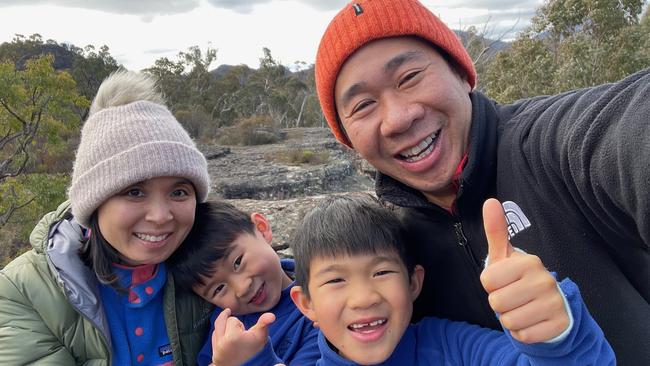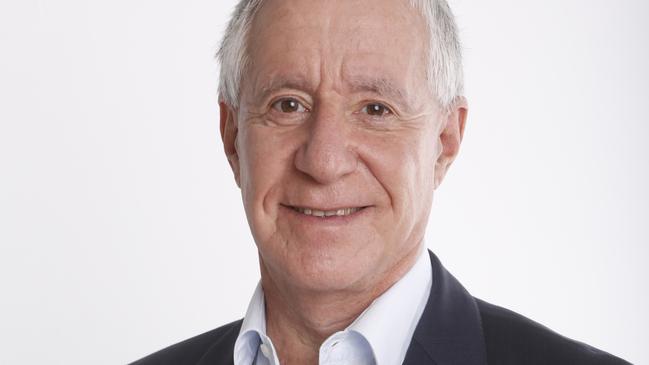New study finds three important signs for bowel cancer
An unexplained surge in bowel cancer among people aged under 50 has doctors worried and a new study highlights the signs you may have the disease.

Illness
Don't miss out on the headlines from Illness. Followed categories will be added to My News.
EXCLUSIVE
It takes up to 10 GP visits for a young person with bowel cancer to get a diagnosis as doctors dismiss symptoms even though rates of the disease in this age group is exploding.
By the time young people are diagnosed, the cancer has usually spread and is much harder to treat.
There has been a 266 per cent increase in bowel cancer rates among teens and young adults over the past three decades and Bowel Cancer Australia said GPs need to expedite colonoscopies when patients have red flag symptoms.
One in nine bowel cancer cases are now occurring in people aged under 50 and it is the deadliest cancer for those aged 25-44.
A new analysis of 25 million young patients published in the Journal of the American Medical Association has isolated the three key symptoms of the disease.
Nearly half the younger people diagnosed with bowel cancer (45 per cent) presented with blood in the stool.
Four in ten (40 per cent) presented with abdominal pain, and more than one-quarter (27 per cent) presented with altered bowel habits, which included constipation, diarrhoea, alternating bowel habits, or alternating diarrhoea, or constipation.
However, the study found that delays in diagnosis were common, with the time from symptom onset to bowel cancer diagnosis ranging up to 13.7 months.
In Australia younger people spend between three months and five years seeing multiple doctors before diagnosis and make ten or more visits to GPs.
It takes 60 per cent longer for younger people to be diagnosed and as a result they are more likely to be diagnosed in later stages of the disease which means the cancer is more deadly.

“This latest study sends a clear message to GPs and younger people of the need to have a high suspicion of red flag signs and symptoms and to work together to expedite colonoscopy to improve outcomes or rule out early-onset bowel cancer as an underlying cause,” Bowel Cancer Australia’s Medical Director Associate Professor Graham Newstead said
The research authors suggest GPs put in place a 30 to 60 day follow-up visit for younger people to confirm whether the original diagnosis was correct if they dismiss bowel cancer.
“Regardless of age, blood in the stool, must be investigated for possible underlying bowel cancer,” A/Prof Newstead said.
In the federal budget released earlier this month, the Albanese Government provided funding to extend the bowel cancer screening program.
More than 1.6 million people aged between 45-49 can now opt in to the National Bowel Cancer Screening Program (NBCSP) and receive a screening test every two years.
Updated clinical practice guidelines also recommend people aged 40-44 can request screening via their healthcare professional.
Natalie Phong thought she had appendicitis when she was raced to ED last year but instead she was diagnosed with Stage 4 bowel cancer.
The 39-year-old mother of two young boys had a sharp, continuous abdominal pain across her stomach and scans found a large tumour on her right ovary.
Despite having no history of cancer in her family further tests showed she had bowel cancer which had spread to her ovaries and liver.
Days before Christmas she had major surgery to remove two thirds of her bowel and she later had a hysterectomy.
“I absolutely had no symptoms other than really sharp pains across my tummy,” she said.
“My advice would be to advocate for your own health, really push for something so if something doesn’t feel right, you should push into second gear third opinion,” she said.
BOWEL CANCER WARNING SIGNS
• Blood in your poo
• Obvious change in your bowel habit
• Weight loss you can’t explain
• Exteme tiredness for no reason
• Lump or swelling in your abdomen
• Abdominal pain
Souce: Bowel Cancer Australia
More Coverage
Originally published as New study finds three important signs for bowel cancer





